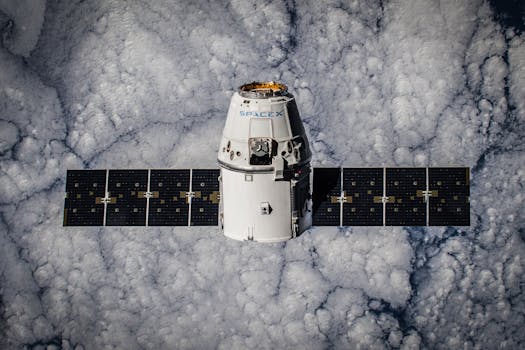The Future of Satellites: Advancements and Innovations in Space Technology

The Future of Satellites: Advancements and Innovations in Space Technology
As we continue to push the boundaries of space exploration, the future of satellites is becoming increasingly important. With the rapid advancement of technology, satellites are playing a vital role in various aspects of our lives, from communication and navigation to weather forecasting and environmental monitoring. In this article, we will explore the current state of satellite technology and what we can expect in the coming years.
Introduction to Satellites
Satellites have been a crucial part of space exploration since the launch of the first artificial satellite, Sputnik, in 1957. Since then, thousands of satellites have been launched into space, with each one serving a specific purpose. Satellites can be categorized into different types based on their functionality, such as communication satellites, navigation satellites, weather satellites, and Earth observation satellites. The development of satellite technology has come a long way since the launch of the first satellite, with significant improvements in design, functionality, and cost-effectiveness.
Current State of Satellite Technology
Today, satellite technology is more advanced than ever before. With the help of satellites, we can communicate with people across the globe, navigate through unfamiliar territories, and monitor the weather and environment. The current state of satellite technology is characterized by the use of advanced materials, sophisticated sensors, and high-speed communication systems. Satellites are also becoming increasingly smaller and more affordable, making them accessible to a wider range of users.
The use of satellites in communication has revolutionized the way we interact with each other. With the help of communication satellites, we can make phone calls, send emails, and access the internet from anywhere in the world. Navigation satellites, such as GPS, have made it possible for us to navigate through unfamiliar territories with ease. Weather satellites help us monitor the weather and predict natural disasters, while Earth observation satellites provide us with valuable data on the environment and climate change.
Future of Satellites
The future of satellites holds much promise, with advancements in technology and innovations in space exploration. One of the most significant trends in the future of satellites is the development of small satellites, also known as CubeSats. These small satellites are designed to be smaller, lighter, and more affordable than traditional satellites, making them accessible to a wider range of users. Small satellites are being used for a variety of applications, including Earth observation, communication, and navigation.
Another trend in the future of satellites is the use of satellite constellations. A satellite constellation is a group of satellites that work together to provide a specific service, such as communication or navigation. Satellite constellations have the potential to provide global coverage, making them ideal for applications such as communication and navigation. Companies such as SpaceX and OneWeb are already working on developing satellite constellations, with plans to launch thousands of satellites into space in the coming years.
The future of satellites also holds much promise for space exploration. With the help of satellites, we can explore new frontiers in space, such as the Moon and Mars. Satellites can provide us with valuable data on the environment and climate of other planets, helping us to better understand the universe. The use of satellites in space exploration can also help us to establish a human settlement on other planets, making it possible for us to become a multi-planetary species.
Conclusion
In conclusion, the future of satellites is exciting and holds much promise. With advancements in technology and innovations in space exploration, satellites are playing an increasingly important role in various aspects of our lives. From communication and navigation to weather forecasting and environmental monitoring, satellites are making a significant impact on our daily lives. As we continue to push the boundaries of space exploration, the future of satellites will become even more important, enabling us to explore new frontiers in space and establish a human settlement on other planets.







